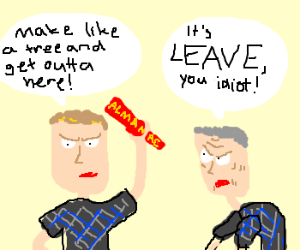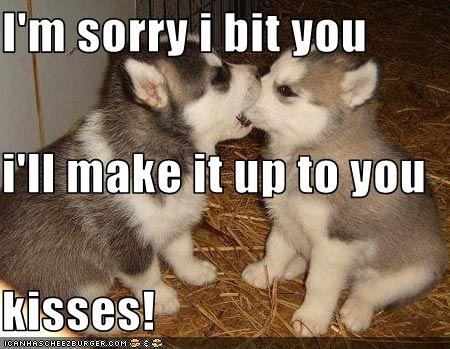This morning my Danish-American better half uttered in Danish: “Så han blev beskyldt for at lave ting op”. This is a word-by-word, “I am not quite awake”-type direct translation of English that she and I catch ourselves doing and which amuses us tremendously whenever we do catch these “Danglish” slip-ups. -And puzzles our Danish friends whenever the internal language filters don’t go in effect in time… 🙂
What she meant to say (in English) was: “So, he was accused of making things up”, i.e. conjuring things, letting his fantasy run. One can see that English and Danish share similar roots in that the preposition “up” also appears in Danish in the translation of this particular meaning of “making up”, however in Danish it goes in front of the word and in Danish you “up-find” things, not “up-make” things.
So far so good, but when one realizes how many meanings “Make up” has in English, things get really, really dicey. If you want to see confusing machine translations, try these:
English ==> Danish:
Make things up (invent) –> Opfinde ting
Make up (reconcile, forgive someone) –> Tilgive, forsones
Make-up (cosmetics) –> Make-up, makeup, sminke
Make up for lost time –> Indhente den tabte tid, indhente det forsømte
Make up one’s mind –> Beslutte sig
I’ll make it up to you (I’ll fix the wrongs) –> Jeg vil kompensere dig, jeg vil gøre det godt igen
Make out with you (passionate kissing) –> Omfavne og kysse dig
Make (verb: to manufacture) –> Lave
Make (noun: a brand name) –> Varemærke, fabrikat
“Make my Day!” (Dirty Harry) –> ?? (Forskøn min dag ?)
Make my bed! –> Red min seng!
Sounds like it’s time for me to make like a tree and leave… 🙂





